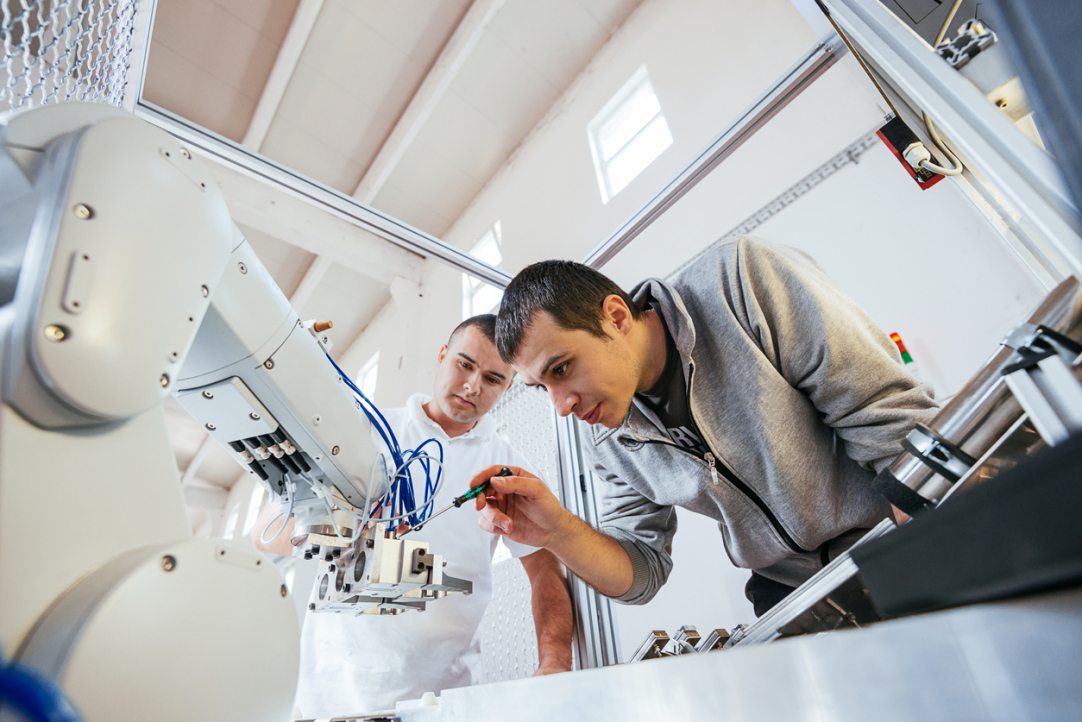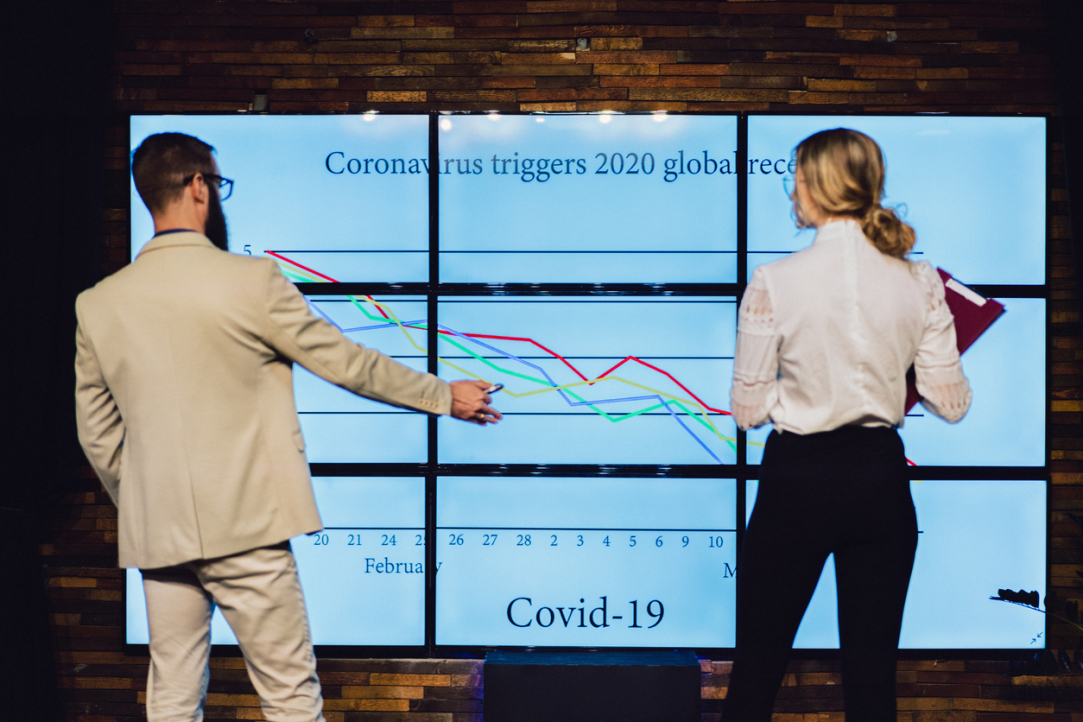
How Modern Robots Are Developed
Today, neuroscience and robotics are developing hand in hand. Mikhail Lebedev, Academic Supervisor at HSE University’s Centre for Bioelectric Interfaces, spoke about how studying the brain inspires the development of robots.

Nature Communications Journal Publishes a Study by Russian Scholars Involving HSE MIEM Students
Biologists and mathematicians from HSE University, Skoltech and the RAS Kharkevich Institute have studied the spread of COVID-19 in Russia. The main part of the study was completed in late June, but until October, the team was working with data following the reviewers’ recommendations. The paper was published on January 28, 2021 in the journal Nature Communications. MIEM students spoke about their contribution to the research.

Almost 30% of Advanced Manufacturing Technologies Used in Russia Are Acquired from Abroad
Russian enterprises have limited opportunities to modernise their technological capabilities independently. Their technological portfolios reveal a high dependence on imported solutions and a limited use of their own developments, HSE researchers discovered.

Lost in Recalculation: How to Estimate the Scale of the Soviet Economy and Its Rate of Growth
Researchers trying to compare economic data of the USSR and capitalist countries face questions of the comprehensiveness, accessibility, and reliability of data on Soviet economic production and growth. At an online seminar hosted by the HSE University International Centre for the History and Sociology of World War II and its Consequences, Assistant Professor Ilya Voskoboynikov (Faculty of Economic Sciences, HSE University) presented an overview of available approaches to studying the absolute size of the Soviet economy and its growth rates.

Glued to Their Screens: How Do Contemporary School Students Use Devices?
2020 has definitely become a year of online learning. Children of all ages, as well as many adults, have had to study remotely. This has allowed researchers to look at education accessibility problems from a new perspective and evaluate how the massive transition to online learning aligns with existing norms and attitudes toward limiting screen time. Nadezhda Knyaginina and Evgenii Puchkov, researchers from the Education Law Laboratory at the HSE Institute of Education talked about their lab’s research on this matter.
.jpg)
Survey Shows Russian University Teachers Have Overcome Fears of Digitalization
The majority of Russian university teachers were prepared for the emergency and online teaching during the coronavirus pandemic and lockdown period. However, they consider remote teaching more time-consuming and less convenient than face-to-face instruction. This is evidenced by a recent survey of the HSE Centre for Institutional Research.

Taming the ‘Black Swan’: Who Will Win the Fight Against the CoronaCrisis
Countries with reserve currencies, sufficient fiscal capacity to implement soft fiscal policies, and access to global capital markets have the best chance of recovering from the coronavirus crisis. The rest may need external assistance. These are the conclusions drawn by Alexei Kireyev, leading IMF economist and visiting professor at HSE University’s School of World Economy.

Middle-Class Russians Reduce Spending When It Comes to Themselves but Not Their Children
Middle-class Russians are more likely to reduce spending on the development of their own human capital and prioritize investing in their children instead, particularly when it comes to their children’s education. This is evidenced by a study conducted by the Centre for Studies of Income and Living Standards of HSE University.

How Lockdown Has Changed Life for Russian Women
Researchers Yulia Chilipenok, Olga Gaponova, Nadezhda Gaponova and Lyubov Danilova of HSE – Nizhny Novgorod looked at how the lockdown has impacted Russian women during the COVID-19 pandemic. They studied the following questions: how women divided their time; how they worked from home; how they got on with their partners and children; and how they dropped old habits and started new ones in relation to nutrition, health, beauty, and self-development.

Catastrophe and Opportunity: HSE University Experts Learn the Lessons of Crises of the Last Hundred Years
The idea for the project, which studies the crisis experience, was born at HSE University’s Faculty of World Economy and International Affairs last spring, when it became clear that the pandemic and lockdown had given rise to a new systemic crisis, based on numerous contradictions that have accumulated in the world over the past decades. The results of the scientific Lessons from the Crises of the Past project have been presented to the portal's news service by Igor Makarov, Head of HSE University’s School of World Economy.

